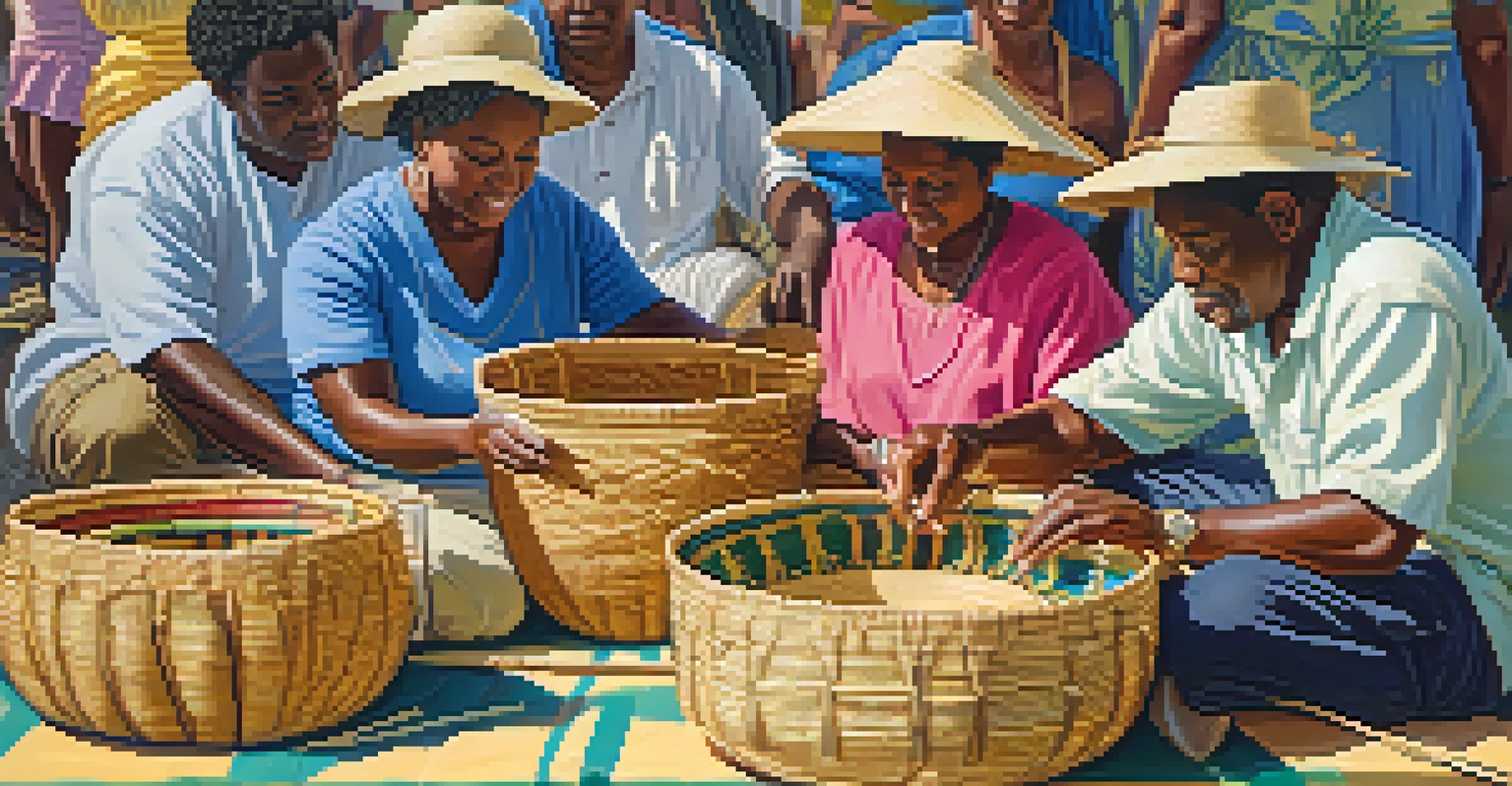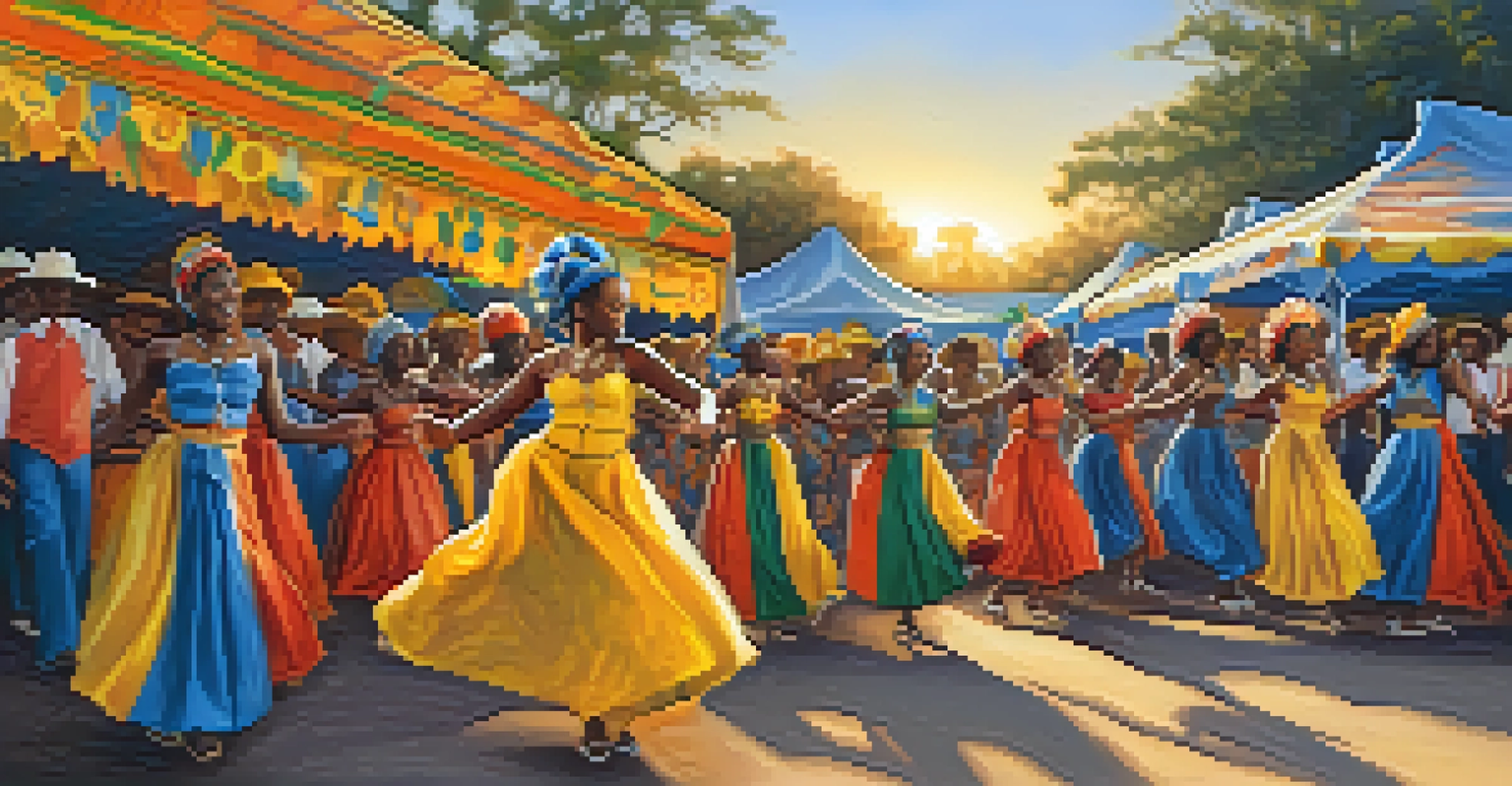Gullah Festival: Embracing African American Heritage in Savannah

What is the Gullah Festival and Its Origins?
The Gullah Festival is a vibrant celebration that honors the culture, traditions, and contributions of the Gullah people, descendants of enslaved Africans in the coastal regions of South Carolina and Georgia. It brings together music, art, food, and storytelling, creating a rich tapestry that reflects the unique heritage of this community. This festival typically occurs in Savannah, Georgia, a city deeply intertwined with African American history.
Culture is the widening of the mind and of the spirit.
Originating in the 1990s, the Gullah Festival was established to preserve and promote the Gullah culture, which is often overlooked yet profoundly significant. The festival showcases the Gullah language, crafts, and culinary traditions that have been passed down through generations. It's a heartfelt reminder of the resilience and creativity of the African American experience.
As attendees participate in various activities, they are not just spectators; they become part of a living history. The festival serves as a bridge connecting the past with the present, ensuring that the stories of the Gullah people continue to resonate with future generations.
Cultural Significance of the Gullah Heritage
The Gullah culture is rich with unique customs, language, and art forms that reflect a blend of African traditions and American influences. This cultural heritage is not just about history; it actively shapes identity and community today. By celebrating the Gullah Festival, participants embrace a vital piece of African American culture that contributes to the broader narrative of American history.

One of the most striking aspects of Gullah culture is its language, often referred to as Gullah or Geechee, which incorporates elements from various African languages. This language serves as a powerful symbol of identity for Gullah people, preserving their lineage and cultural roots. During the festival, visitors often have the chance to engage with speakers and learn about the linguistic heritage that enriches the community.
Celebrating Gullah Heritage
The Gullah Festival honors the rich culture, traditions, and contributions of the Gullah people, facilitating a vibrant celebration of their unique heritage.
Art also plays a crucial role in the Gullah heritage, from the intricate sweetgrass baskets to vibrant storytelling through music and dance. These art forms are not merely decorative; they carry stories and traditions that connect generations. The festival provides a platform for artists to showcase their work, helping to sustain these important cultural practices.
The Role of Food in Gullah Culture
Food is an integral part of the Gullah culture, serving as a medium for storytelling and connection. Traditional dishes, such as shrimp and grits, okra soup, and collard greens, reflect the agricultural practices and available resources of the region. At the Gullah Festival, attendees can indulge in these culinary delights, allowing their taste buds to experience the history and heritage of the Gullah people.
The beauty of the world lies in the diversity of its people.
Moreover, food at the festival is often prepared using recipes that have been handed down through generations, emphasizing the importance of family and tradition. Cooking demonstrations and workshops are common, inviting participants to learn the significance behind each dish and the stories that accompany them. It's a delicious way to engage with culture and history.
By sharing meals together, festival-goers foster a sense of community and belonging. Food acts as a unifying force, bringing people from different backgrounds together to celebrate the rich tapestry of Gullah heritage. This communal aspect of dining highlights the importance of togetherness in preserving cultural identity.
Music and Dance: The Heartbeat of Gullah Festival
Music and dance are vital expressions of Gullah culture, serving as both entertainment and storytelling. At the festival, you can experience live performances featuring traditional Gullah songs and contemporary interpretations that resonate with audiences of all ages. This fusion of old and new creates an energetic atmosphere that captures the essence of the Gullah spirit.
One of the most notable musical forms is the call-and-response style, where performers engage with their audience in an interactive manner. This technique not only entertains but also keeps alive the oral traditions of African ancestry. The rhythmic beats and soulful melodies transport listeners to a time when music was a vital part of community gatherings and celebrations.
Food as Cultural Connection
Traditional Gullah cuisine, showcased at the festival, serves as a medium for storytelling and fosters community engagement through shared meals.
Dance also plays a significant role during the festival, with performers showcasing traditional Gullah dances that tell stories and celebrate life. These dances often draw on African influences, representing a rich history of resilience and joy. By participating in these lively performances, attendees connect with the culture on a deeper level, experiencing the heart and soul of the Gullah community.
Artisans and Crafts: Preserving Gullah Traditions
One of the festival's highlights is the presence of local artisans who display their crafts. From vibrant paintings to handcrafted jewelry and traditional sweetgrass baskets, these artisans showcase the skills that have been honed over generations. Their work not only reflects the beauty of Gullah culture but also serves as a means of economic empowerment for the community.
Crafting sweetgrass baskets is a particularly significant tradition that dates back to the African ancestors of the Gullah people. Each basket is intricately woven and tells a story of the artisan's heritage and creativity. At the festival, visitors have the opportunity to observe the weaving process, learn techniques, and even purchase these unique pieces, supporting local artists.
Artisans often share their personal stories and the cultural significance behind their crafts, creating a deeper appreciation for Gullah heritage. This interaction fosters connections between the artists and attendees, bridging the gap between generations and ensuring that these traditions live on. The festival serves as a platform for preserving these valuable cultural expressions.
Community Engagement and Education at the Festival
The Gullah Festival is more than just a celebration; it’s an educational experience that fosters community engagement. Workshops, discussions, and storytelling sessions are held throughout the event, allowing attendees to learn directly from Gullah elders and cultural experts. This interactive approach encourages a deeper understanding of the Gullah heritage and its relevance today.
By engaging with the community, participants are invited to explore the challenges and triumphs faced by the Gullah people. These conversations help to create awareness and appreciation for the ongoing struggles for recognition and preservation of their culture. The festival becomes a space where history is honored, and future generations are inspired to carry forward the legacy.
Artisans Preserving Traditions
Local artisans at the festival display crafts that reflect Gullah culture, ensuring the preservation and appreciation of their artistic heritage.
Involving local schools and organizations, the festival also aims to reach younger audiences, ensuring that the Gullah culture remains vibrant and influential. Educational programs designed for children highlight the importance of cultural pride and community, fostering a sense of belonging and stewardship for the Gullah heritage.
The Future of the Gullah Festival and Its Impact
As the Gullah Festival continues to grow, its impact on the community and beyond is increasingly significant. The festival not only celebrates heritage but also raises awareness about the challenges that the Gullah people face today, such as issues of land preservation, cultural erosion, and economic disparities. By shining a light on these issues, the festival plays a crucial role in advocating for the Gullah community.
In recent years, the festival has attracted a diverse audience, creating opportunities for cultural exchange and dialogue. This interaction fosters understanding and respect among different cultures, highlighting the universal themes of resilience and creativity. The festival encourages attendees to appreciate the richness of Gullah heritage while reflecting on their own cultural identities.

Looking ahead, the Gullah Festival aims to expand its reach and continue its mission of education and preservation. By nurturing partnerships with local organizations and schools, the festival seeks to ensure that future generations can connect with and celebrate their heritage. This commitment to cultural sustainability is essential for keeping the Gullah spirit alive.